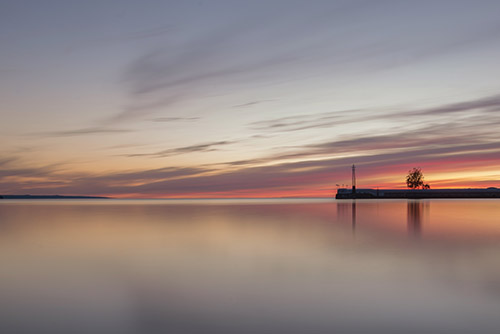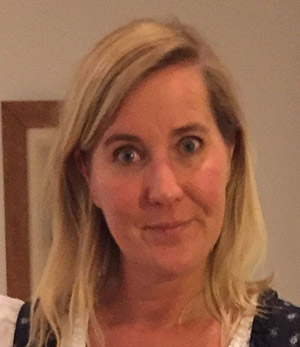New research project wants to create sustainable development for Vättern
"Water to all creatures. Nature's Rights as Ecosystem Management Innovation" is a research project that focuses on Lake Vättern. How would the situation for Lake Vättern change if the lake had its own rights and how can this ensure its survival as a valuable ecosystem and contribute to sustainable water management? That's the question the project wants answered.
The research project is centered around Lake Vättern and concerns the water supply around the lake and long-term in the Mälar area and includes over 3 million people's access to drinking water. Today, the lake suffers from environmental problems and is further threatened by, among other things, emissions and plans for mining exploitation - despite the fact that the lake must be protected as a drinking water source, Natura 2000 area and four national interests according to the Environmental Code. The purpose of the project is to investigate whether Nature's Rights can contribute with new ways, at the cultural and legislative level, to protect and restore the lake's life-sustaining ecosystems linked to the circulation of water.

Lake Vättern.
Granted SEK 16 million
The entire project has been granted SEK 16 million over four years, 2023–2026. Åsa Nilsson Dahlström, senior lecturer in global studies at the School of Learning and Communication (HLK) at Jönköping University (JU) is a participant and contributes 40 percent research per year throughout the period.
Åsa says that today's models and methods are not sufficient to create sustainable development where the earth's ecosystems are not destroyed. There are countries that have nature's rights in the constitution, such as Ecuador. Other countries have chosen to give specific ecosystems the status of legal entity, and the Whangnui River in New Zealand is an example of that.

Åsa Nilsson Dahlström.
"In our project, we focus on Lake Vättern and will thus investigate whether the lake's ecosystem could be better protected if Vättern were given legal personality, could speak for itself and, for example, prevent being polluted, or to demand that damaged environments be restored," says Åsa Nilsson Dahlström.
Change-creating meetings
The project is based on investigations of the application of Nature's rights in other parts of the world, and creates data through "transition labs" or change-creating meetings around Lake Vättern. The method means that actors around Lake Vättern gather to develop innovative knowledge on a specific issue under the guidance of a knowledgeable moderator and invited experts. This in collaboration with politicians, locals, entrepreneurs and authorities, to explore the possibilities of rights for the lake.
Increase engagement around Lake Vättern
One of the purposes of the study is to formulate recommendations to legislators. But also involve the local communities around Lake Vättern and together with them increase knowledge and commitment to the lake.
"The local commitment and knowledge of Lake Vättern is crucial to create sustainable development of the lake. By working with visions of how Lake Vättern should be in the future, based on the idea that the lake's ecosystem can have its own rights, together you can find the ways to get there, concludes Åsa Nilsson Dahlström.
Participating researchers: Martin Hultman, Chalmers University of Technology (main applicant), Åsa Nilsson Dahlström, School of Learning and Communication (HLK) at Jönköping University (JU), Marie Widengård, Department of Global Studies at the University of Gothenburg and Thomas Laurien HDK/Valand at the University of Gothenburg, as well as a doctoral student who will be recruited to the project.
The research project was granted funding through FORMAS.
